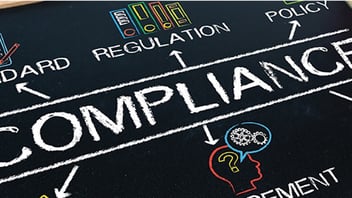There's been a sudden buzz in the UK surrounding the notion of inbound marketing. It's been a common movement in the US for years now, perhaps since the inception of Hubspot in 2006. Inbound marketing was conceived as an alternative to the more traditional digital marketing, but to the average user it can be hard to note any explicit differences. While we've written in-depth about inbound marketing in the past, we felt it's high time to shed a bit of light and outline some of the differences, the main being their area of effect.
Why Digital?
Go to Google and type in "digital marketing agency" and you'll get a fairly massive result. Why? Because digital cannot really be defined by a single definition; in essence, digital marketing encompasses any kind of communication or advertising we see on the internet. Many companies will view digital marketing as a brute quantity strategy that involves paid search engine or social advertising. Those advertising banners you see all over Facebook that are eerily in line with your hobbies and interests? That's a form of digital marketing. Companies often use social platforms like Facebook to perform market research, and will tailor their ads accordingly.
While Facebook advertising is an element of digital marketing, companies would be amiss to think this is where its usefulness ends. Every advert you've seen on the internet, every infographic you've procrastinated your way through, every YouTube video, StumbleUpon page and so on can all be considered elements of digital marketing. No matter how big or small, they all serve to promote something, whether that be sales, a company message, a personal ideology or agenda, or even something as passive as a joke.
Digital marketing can include specific elements such as as SEO, social media marketing or graphics design amongst many other forms - and for that reason can be seen as much less time consuming to develop than executing an effective inbound marketing startegy, mainly due to the fact that so many methods of outreach fall into this category. We think of Digital Marketing an overiding term for marketing online - Inbound Marketing is an area of expertise within it. The type of digital marketing that will be most helpful for your business will depend on many factors - the type of customer base you are serving, the team and resources you have, the markets you operate in but most importantly - the type of buyer journey you are focused upon.
Imagine digital marketing as a net cast into the ocean; initially you don't know what you'll be pulling out of the water, you can't hit on all the digital marketing strategies available - its simply too big an area. This potentially makes digital marketing quite a risky proposition if you havent focused your strategy down to measurable and attainable goals . Will you be wildly successful, or miss the mark entirely, thus wasting precious funds?
So what form of Digital Marketing is right for you?

The Emergence of the Inbound Marketing Agency
Why is inbound marketing only recently becoming a regular term in the UK? For a start, it could have something to do with the rise and rise of ad-blocking - A reported 12 million active internet users have ad-blocking software installed in their browsers, a meteoric 82% rise since the previous year. But more likely , the reason is behind it is that more people are spending an increased amount of time online researching their purchasing decisions. There is much more choice readily available and so the 'traditional sales cycle' is now shifting to further down the buyer journey, (i.e the prospect engages the sales rep later than they used to in the past).
Inbound marketing requires interactivity. You'll be required to "nurture" a prospective customer through their journey from a website stranger to signed-up buyer. This can be through various methods, including email campaigns, newsletters, ebooks, white papers, blogs and scheduled, personalised social media posts. Inbound marketing is largely designed on the user taking something away from the experience, providing some form of educational benefit that will encourage the lead further into the customer journey.
As such, as social media usage in the workplace continues to increase year on year, companies are relying on the interactive elements that define inbound marketing. Creating a relationship with potential customers is commonly seen as more engaging and more convincing than digital marketing. But again, this entirely depends on what you're selling. A business that mass produces products could make exceptional use of the more personal elements of inbound marketing to reach a wide following.
Essentially, inbound marketing is a part of the digital marketing sphere; a bold methodology and a modern approach to marketing that has changed the way we interact with our customers. That's not to say it's necessarily foolproof for every type of business but if you are in an organisation that sells higher value products or services - i.e those that require an element of research and consideration from the customer, then it could be an invaluable marketing startegy to look into.

So is your business a good fit for Inbound Marketing? Some questions for you to consider:
- Do you know your customers well enough to build a marketing plan around their specific problems or desires?
- Is your company the right size to budget for time and technology costs for Inbound?
- Do your customers do their research online?
- Do you provide a higher value product or service?
- Do you have a sales team to follow up on leads?
- Is knowing the exact Cost of Customer Acquisition something you want to know?
- Do you expect results straight away or are you looking to build a long term valuable lead generation and prospect education machine?
To find out more about what inbound and if its right for your business, visit 'What Is Inbound Marketing' to learn more.





